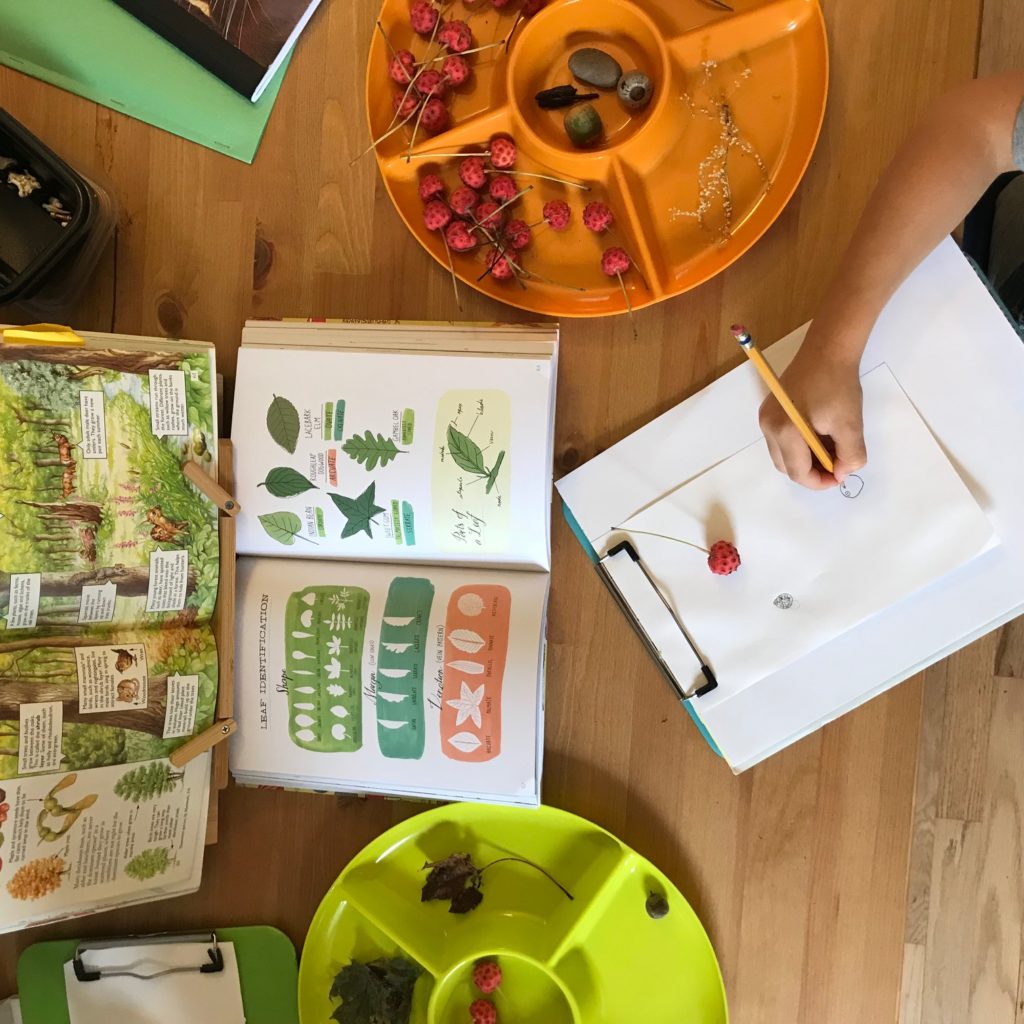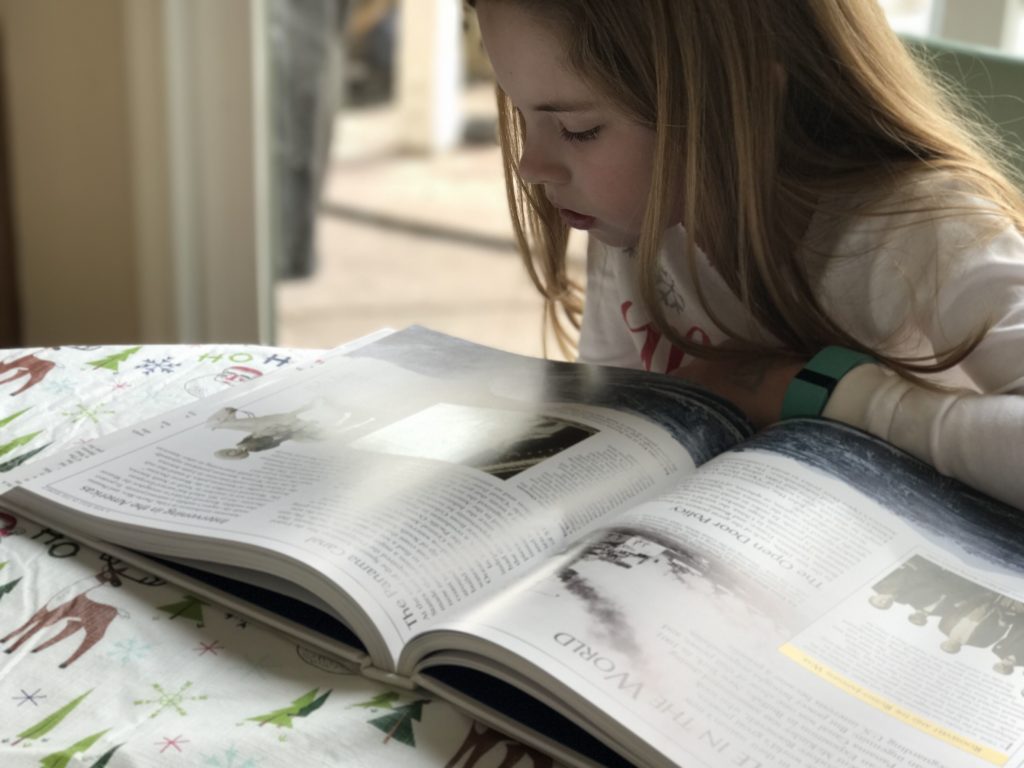A beginner’s guide to homeschooling

Homeschooling comes with so many different options from curriculums to goals to benchmarks. It can be overwhelming when starting to research the best plan for you and your child since every family — and every learner —is unique. Knowing how your child learns is among the information that will help you choose the best method to help you teach them.
Every homeschooling (and homeschooling-to-be) family’s journey will be uniquely tailored to their individual needs and goals. This guide to homeschooling is filled with resources and information to get you started.
Laws related to homeschooling
When considering to homeschool your child, you should be aware of your state’s education laws.
Homeschooling is legal throughout the United States, but the standards and requirements vary a lot between states, because every state makes its own laws. The Coalition for Responsible Home Education compiled an interactive mapped guide for all 50 states’ requirements.
Only 11 states — Washington, New Mexico, North Dakota, Pennsylvania, Ohio, West Virginia, Tennessee, Virginia, North Carolina, South Carolina, Georgia — have formal parent qualification requirements. Other states have vague guidelines. In general, most states dictate the parent teacher must have completed high school or an equivalent. These guidelines don’t make it more difficult to homeschool within these states, it just means they want a standard for parent teachers.
The reasoning behind that requirement, according to the Coalition for Responsible Home Education, “homeschool parents may teach students of any grade level and cannot be expected to be capable of teaching at a grade level above that which they themselves have completed. Completing a secondary education ensures the parents value education in their own lives.”
Homeschooling methods
There are many different methods within homeschooling, some more involved than others. Each method teaches children differently, so it’s about learning how your child learns best and supporting that path.
School at Home
The school at home method is the most similar to a traditional school curriculum. Most families who practice this method use the same curriculums their public schools employ, along with all the standards and tests. This is a great method for kids transitioning in or out of traditional school, or who flourish in a traditional school setting.
Eclectic Education
Eclectic education combines different curriculums and methods into one framework, flexible enough to use with a variety of learning habits, but rigid enough to still be considered a traditional type of homeschooling. This is a great method for parents and kids who want a little bit of everything within their framework.
Classical
The Classical method incorporates heavy reading and coursework with teaching the impact of ideas over time through chronological history of the world. Curriculums largely focus on all kinds of classic poetry and prose: Shakespeare, Moby Dick, Pride and Prejudice and Tom Sawyer, to name a few. This is a great method for kids with a strength in reading and writing.
Charlotte Mason
The Charlotte Mason method is based on its namesake’s philosophy of learning: “Education is an atmosphere, a discipline, a life.” Mason believed children should learn through observation, journaling and experiencing nature. This is a great method for parents who want to teach their kids naturally, as it follows the same learning path a child would use without guidance or instruction.
Unit Studies
The unit studies method teaches subjects thematically instead of individually; units are taught whole instead of broken up into subjects. This allows a student to use their stronger subjects to bolster their weaker ones, using a strong curriculum or framework as a guide.
Unschooling
One of the more controversial methods of homeschooling, unschooling is the most flexible type of homeschooling. The child directs their own learning and parents are there to guide, not lecture or teach. Children learn through real world experience and observation, without any type of framework, curriculum or standards.
Which type of homeschooling is right for you
Choosing the right method for you depends on your family and how your kids learn.
“Our unschooling journey was gradual,” said Sara Yasner, an unschooling mom. “Unschooling fit my personality and life philosophy and the kids flourished with it.”
Every child learns uniquely, at different speeds, and flourishes in certain areas above others.
“I am a working homeschool mom,” said Misty Bailey, an eclectic homeschooling mom. “I have a special needs son who requires a lot of my attention. I needed to embrace the flexibility of homeschooling and for us, that includes taking a more eclectic approach.”
No homeschooling family is exactly alike, no matter what kind of method they decide to use. You can use parts of several methods together, or stick strictly to the guidelines of only one method. It’s about what’s best for your child and your family, and what works for you.

How to deschool kids
The process of taking a child out of a traditional school environment and into a homeschooling environment can sometimes be difficult. Most times homeschooling parents and their children go through this process, called deschooling, and don’t even know it.
Sometimes, the child will develop an attitude where if their homeschooling environment is too much like school, they don’t want to do it, but on the other hand, they won’t do homeschooling tasks because “that’s not how we did it in school”.
The easiest thing to do as a homeschooling parent is let your child know deschooling could happen to them, and it’s a completely natural process that will eventually pass once they adjust to their new environment.
This kind of attitude can also signal a burn out with school and learning in general. “The best approach with a child who is burned out because of the public school system is to try to find what interests the child and provide resources for them to learn about it – as you do this, you’re getting them to read, do research, maybe even write some,” said Kris Cox, a homeschooling consultant.
Homeschooling and socializing
A popular stereotype about homeschooling students is they don’t get enough socialization as they need, unlike traditional school. Homeschoolers and experts say that’s not the case.
“Homeschooling provides a great environment for socialization,” Cox said. “Socialization is defined as the process of learning to behave in a way that is acceptable to society. I think most parents are well qualified to teach their children how to best behave in society. In truth, when children spend eight hours a day with mainly their peers, there is a lot of negative socialization that can happen: bullying, rudeness, unkindness, selfishness, peer pressure to conform, etc.”
Many parents unfamiliar with homeschooling methods don’t realize that every activity a child does counts as socialization. Birthday parties, pool time in the summer, summer camps, sports, music classes, can all be considered socialization, and plenty of those activities are outside the realm of traditional school.
“Younger kids don’t need as much socialization outside of family and some friends,” said Ann Karako, a homeschool consultant and author of Annie and Everything. “Teens feel a stronger need to socialize, but there are so many opportunities out there for them. Sports, music, night classes, organized activities and clubs. Church can be a good one as well. Make the effort to look around, and be willing to take your child to all their activities. Inviting people over and initiating activities is also a great way to support socialization.”
It’s also common for traditional schools, and even universities, to open their extracurricular activities to the community instead of just to students, so homeschooling students have access to activities and classes sponsored by the school. Joining homeschool groups is also an option.
Why choose homeschooling
Families decide to homeschool their kids for a variety of reasons. Some parents were homeschooled themselves, and feel they can give their child the best education on their own. Some families live far away from good schools, and may have multiple children of different ages, which would make school drop offs and pick ups difficult. Sometimes, it’s because their child isn’t thriving in a traditional school environment, and needs a different environment.
“My son didn’t like to color within the lines, and we didn’t want him to have to,” said Crystal Sands, a unit studies homeschooling mom. “It became clear that not coloring within the lines within the school system was going to get him into trouble, and it did. One day after he had been in trouble in school, I asked him why he had done something, he said, ‘Because I’m the bad kid.’ That was a critical moment for me as a mom and a professor. I couldn’t let my son grow up thinking he was ‘bad’ because he didn’t fit well within the public school system.”
However you arrive at deciding to homeschool your child, the best part of homeschooling is you can make every little bit unique to you and your situation.
